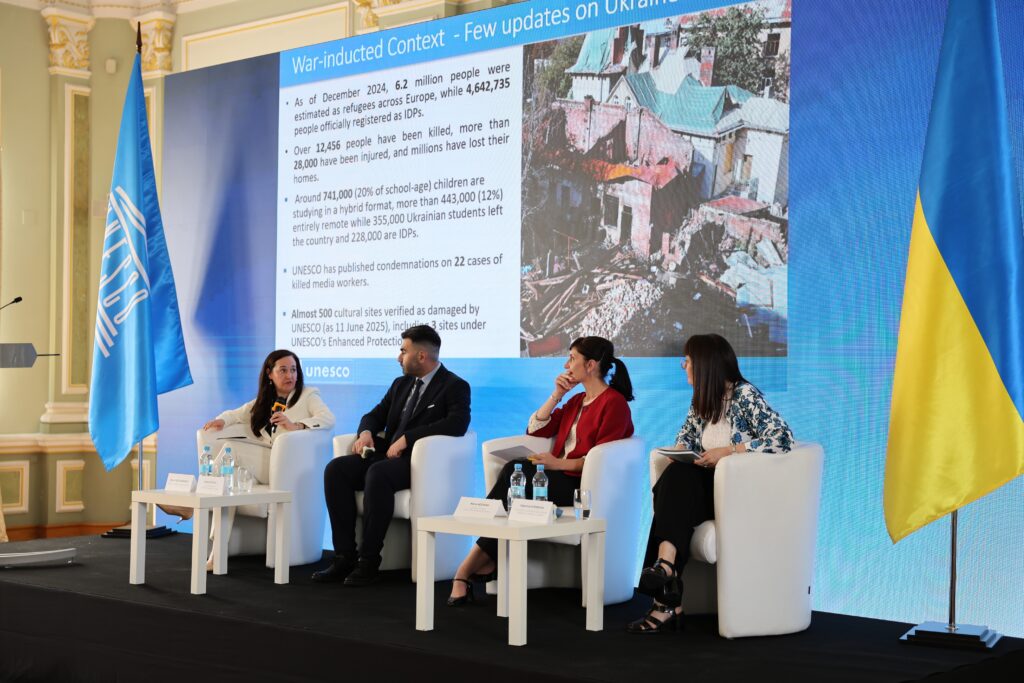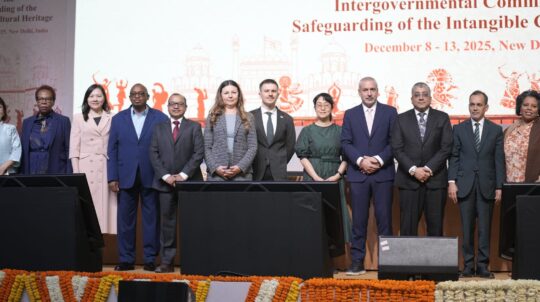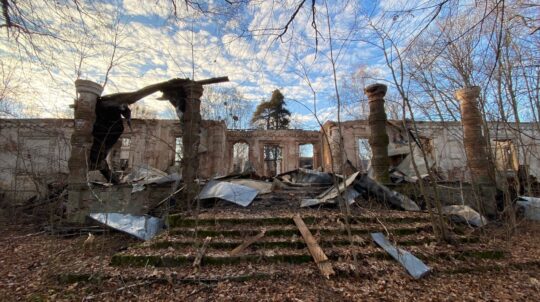On June 16, an information session on UNESCO’s activities was held in Ukraine. The event brought together donors, national partners, and government officials to discuss support for culture, education, science, and media amid the war and the country’s recovery efforts.
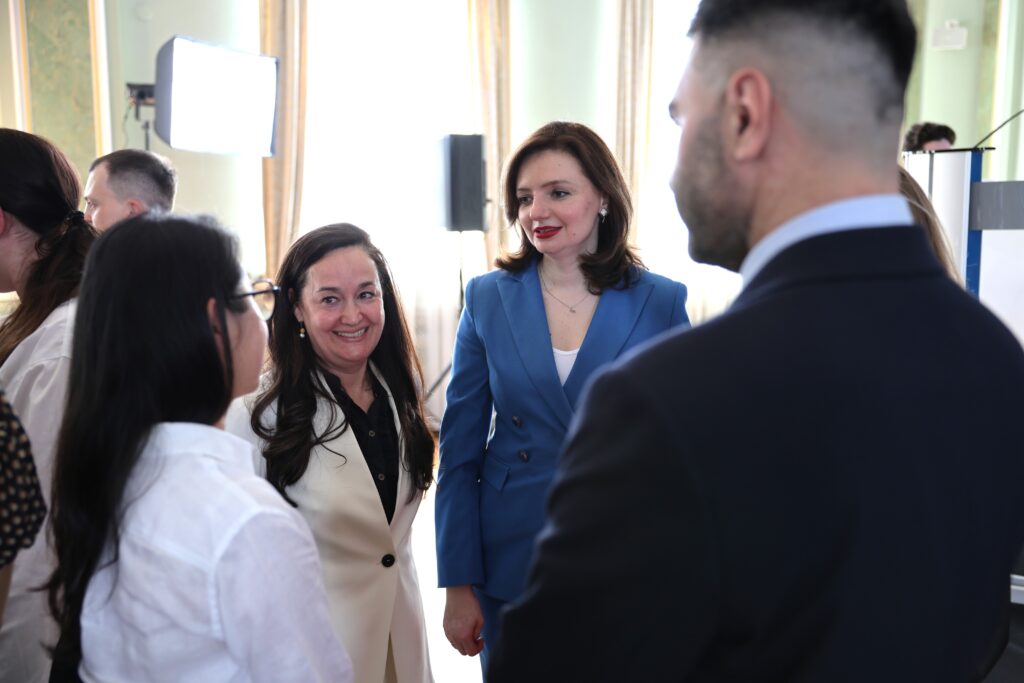
Mariana Betsa, Deputy Minister for Foreign Affairs of Ukraine and President of the National Commission of Ukraine for UNESCO; Yevhen Kudriavets, First Deputy Minister of Education and Science of Ukraine; and Masashi Nakagome, Ambassador Extraordinary and Plenipotentiary of Japan to Ukraine, delivered opening remarks.
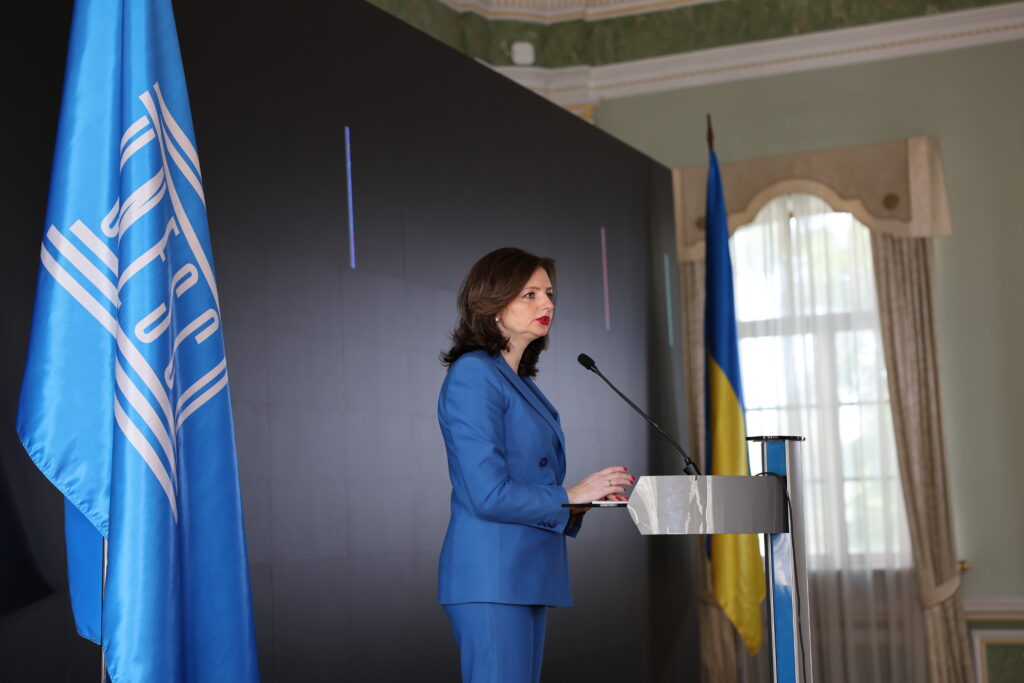
Anastasia Bondar, Deputy Minister for Digital Development, Digital Transformations and Digitalization at the Ministry of Culture and Strategic Communications of Ukraine, highlighted culture as a key pillar of Ukraine’s resilience. She expressed gratitude to UNESCO for its consistent support since the start of the full-scale invasion, especially in protecting cultural heritage, supporting media, and strengthening institutions and professionals.
“Three and a half years into the full-scale invasion, one thing is certain: culture is not a privilege of peace — it is the foundation of our national resilience. UNESCO’s steadfast support in the most fragile areas of the cultural sector has enabled us not only to respond to loss but also to protect what remains and lay the foundation for renewal”, said Anastasia Bondar.
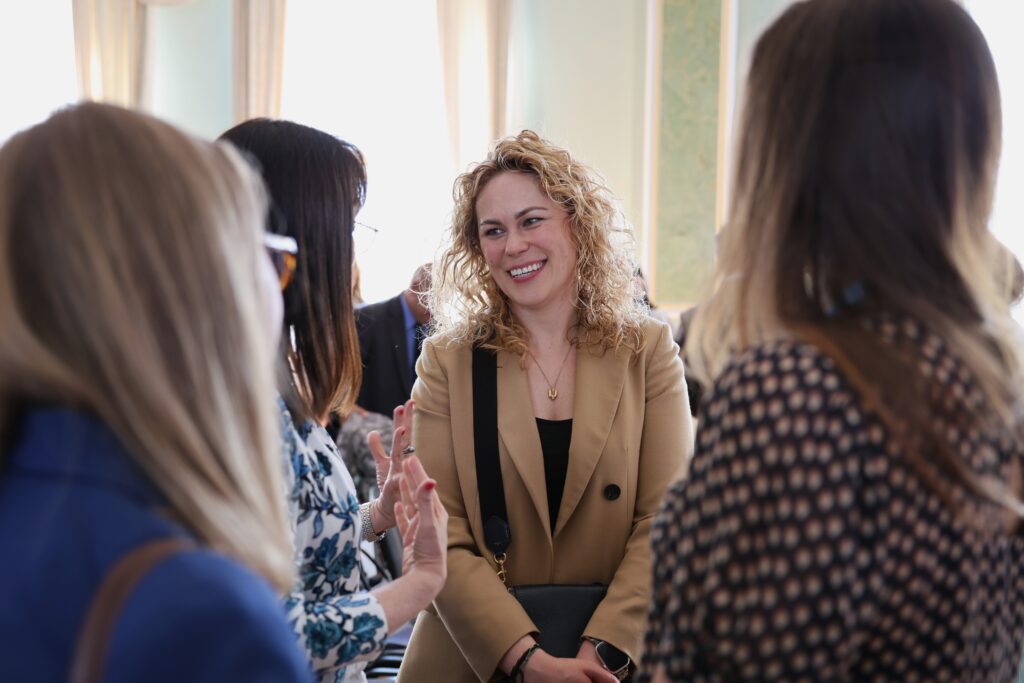
The MCSC’s partnership with UNESCO centers on key strategic priorities: protecting and restoring cultural heritage, monitoring and documenting damaged sites, driving digital transformation in the cultural sector, and supporting freedom of expression and the safety of journalists. Notable projects include assistance for World Heritage Sites in Kyiv, Odesa, and Lviv; upgrading museum storage facilities; satellite monitoring; 3D laser scanning of historic buildings; and the digital preservation of cultural property.
Special focus has been placed on opening a cultural hub in Lviv, supporting veteran reintegration through cultural initiatives, making heritage sites accessible for people with limited mobility, and safeguarding intangible cultural heritage. Other vital efforts include advancing media literacy, protecting freedom of expression, and ensuring the safety of journalists.
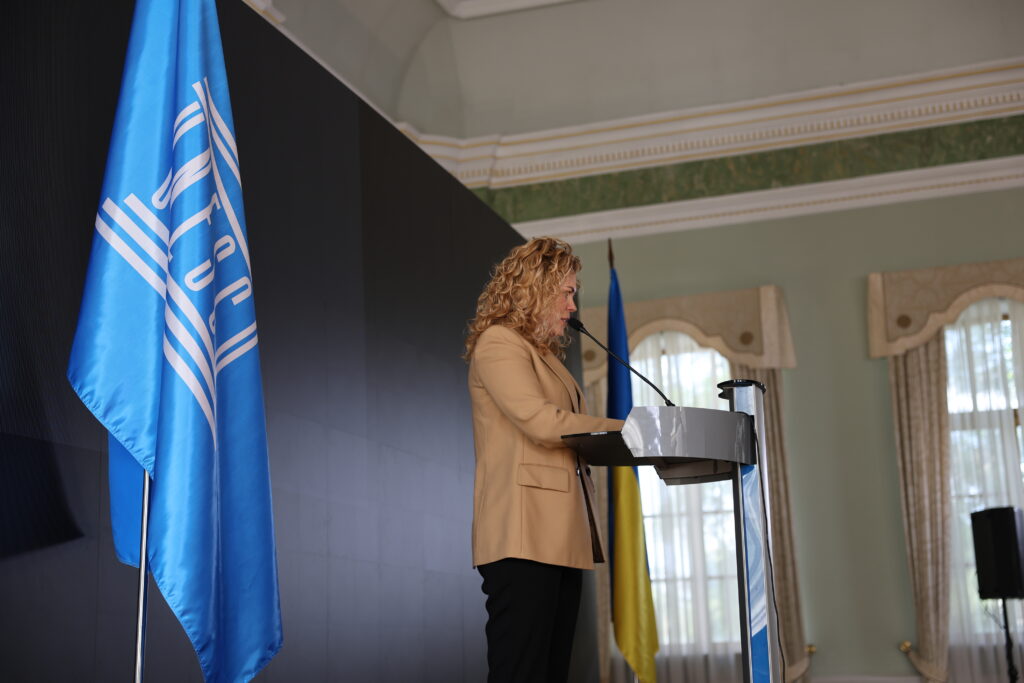
Anastasiia Bondar also expressed gratitude to the Government of Japan for its strategic financial support, which made possible the creation of the Recovery Support Unit under the MCSC — a crucial platform for coordinating Ukraine’s cultural recovery projects.
Ukraine also became a member of UNESCO’s World Heritage Committee and achieved official recognition of the invasion as a threat to cultural heritage — marking a significant step toward holding perpetrators accountable. Ukraine leads the world in the number of heritage sites under enhanced protection and was the first to implement UNESCO’s ad hoc monitoring mechanism, beginning with Kharkiv.
